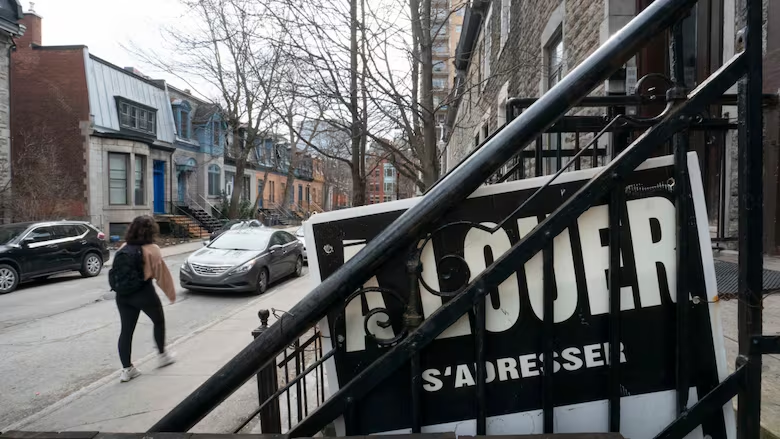Here is the rent increase Quebec tenants should expect in 2024
Tenants' group says rental board numbers are too high, landlords say they're too low

Most tenants in Quebec should get ready for another hike in rent costs, after the province's housing tribunal released its latest rent-increase guidelines for landlords.
Each year, the Tribunal administratif du logement (TAL) releases a set of calculations landlords can use before sending a notice of rent increase to a tenant. Those calculations are based on landlords' expenses for a particular dwelling.
According to the latest guidelines, which were released on Tuesday, tenants living in homes where heat is electric or is not included in the rent should see their rent increase by an average of four per cent, compared to 2.3 per cent last year.
For rental homes where gas heating is included in the rent, the increase is 3.3 per cent — for oil, it is 1.6 per cent. The increases in percentages for those types of homes is significantly lower than last year's.
In the case of homes that are unheated or heated by electricity, a four per cent increase would mean that someone currently paying $1,000 in monthly rent would see that go up to $1,040.
That number could go as high as $1,066 depending on factors that are specific to that rental unit, such as an increase in municipal taxes and costly renovations that have been carried out.
Groups for tenants, landlords both unhappy
In Quebec, a tenant is allowed to refuse a rent increase from a landlord.
If the two parties cannot agree on a number, the landlord can file an application with the TAL to modify the lease within a month of receiving the tenant's reply.
When taking capital expenditures into account, the TAL granted an increase of 4.6 per cent on average in the cases that were brought before it in 2023.
Cédric Dussault, a spokesperson for the Regroupement des comités logement et associations de locataires du Québec (RCLALQ), which is a tenants' right group in the province, said the calculations released by the TAL spell bad news for renters.
"Right now, tenants do not have a lot of power of negotiation with their landlords," he said.
"When they are facing pressures such as harassment and also threats of being evicted, they tend to accept raises that are really unacceptable."
Dussault says many tenants are already paying more in rent than they can afford and it's taking a toll on their mental health.
A group representing landlords says the housing tribunal's calculations do not take into account the expenses landlords have to manage, including rising interest rates.
"The way that the Tribunal administratif du logement is calculating things is not adequate. It has to be revisited," said Martin Messier, the president of the Association des propriétaires du Québec (APQ).
He said repairs are expensive, and a rent increase that follows the TAL's guidelines means it would take decades before getting a return on that investment.
He also said he understands that some tenants are in difficult situations.
"We need the the money to invest properly and to keep the building in good condition," Messier said.
"On the other side, we understand there are tenants for which is going to be difficult and we need as a society to help them not to ask for the landlord to do that on their own."
With files from John Ngala



